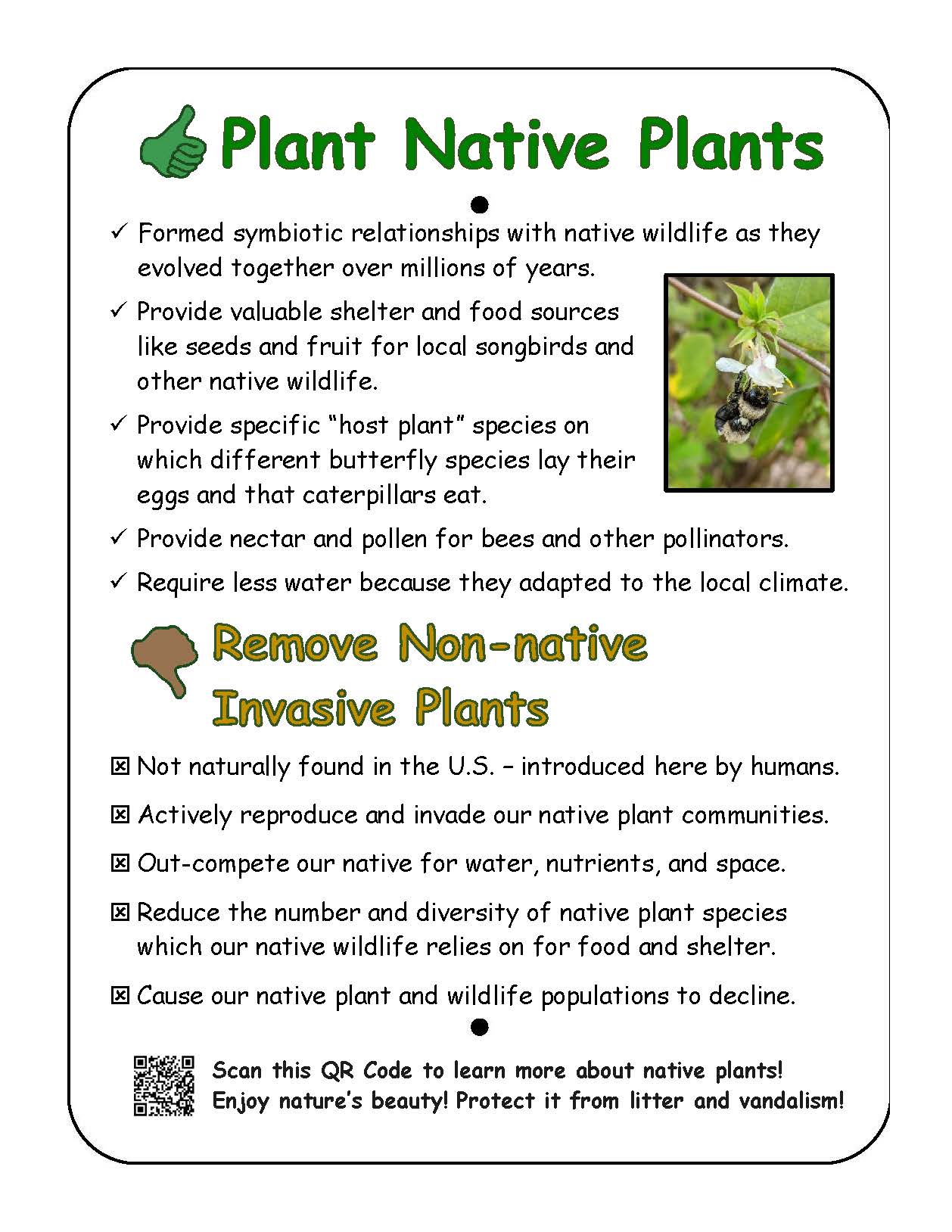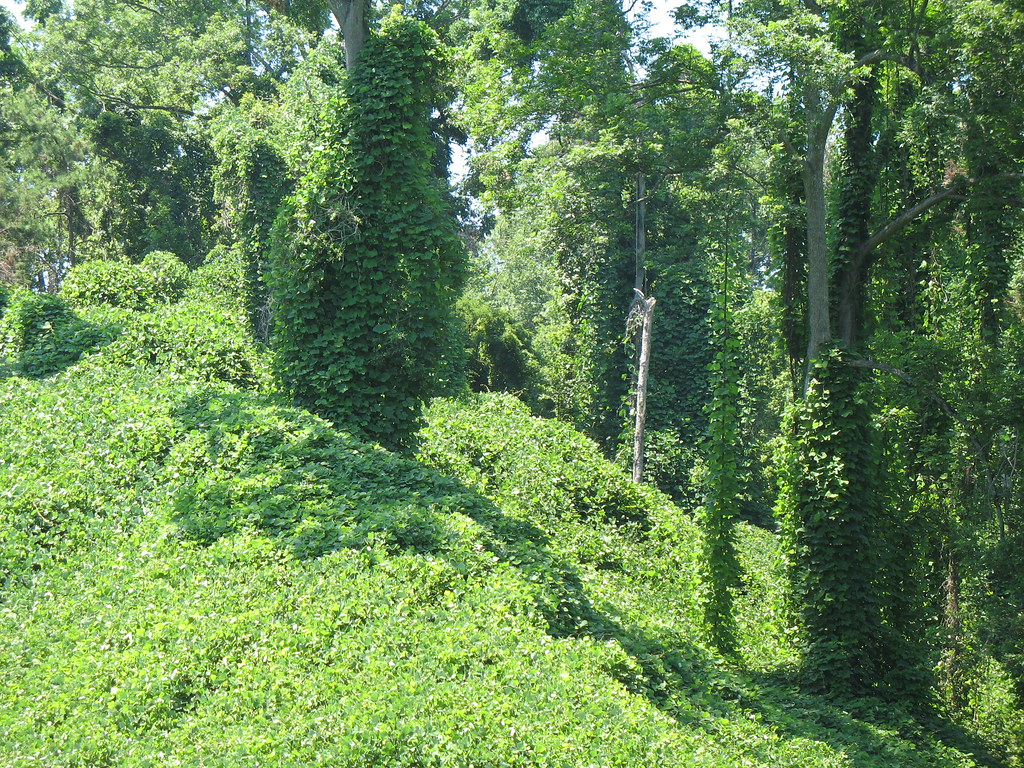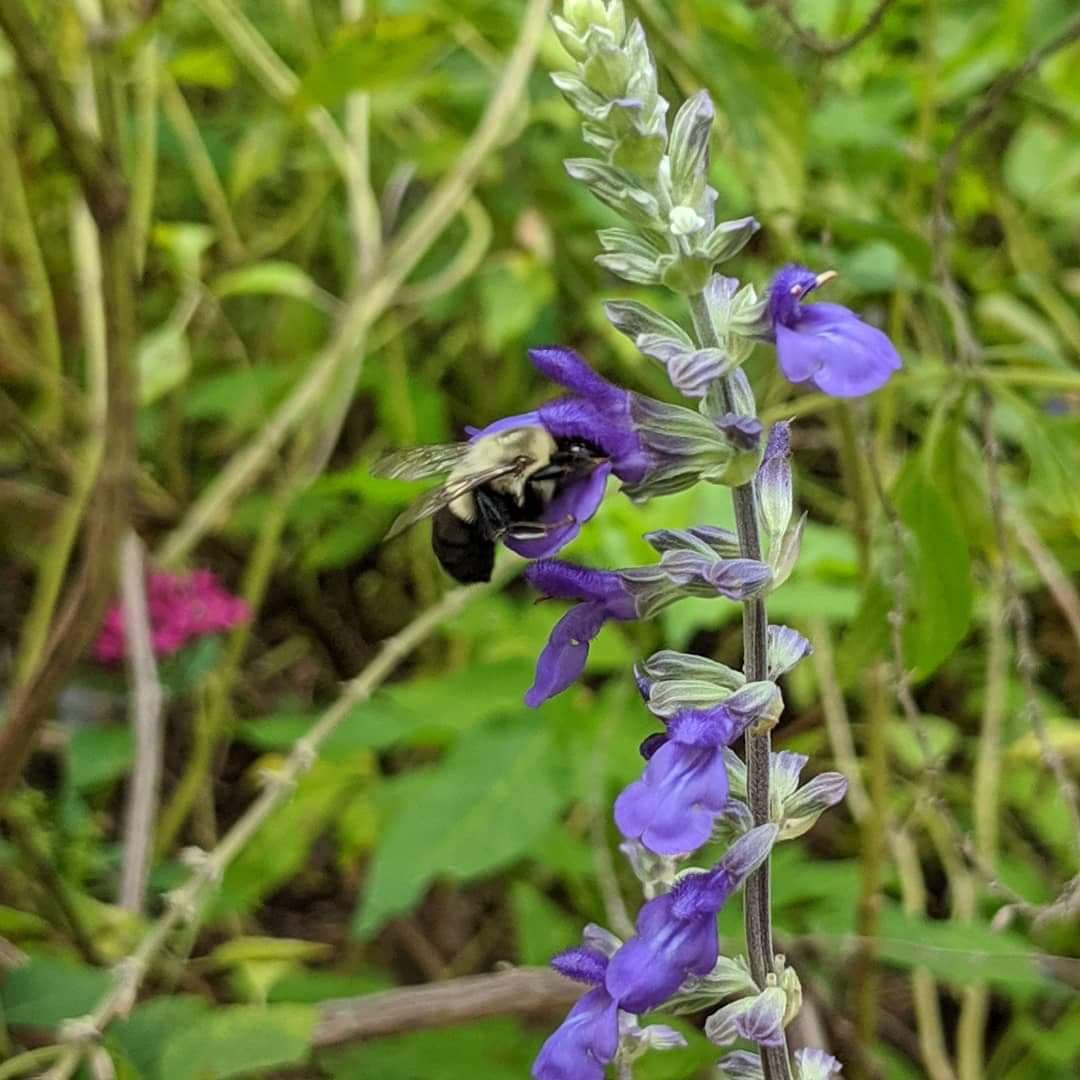Why Plant Natives
| Native versus Non-native | Why Non-natives and Invasives are Bad | Top 15 Invasives to Avoid | Why Plant Natives? | How to Find Natives |
| Native vs Non-native | |
| What is a native plant?
A species that naturally exists in a specific geographic region without humans historically introducing it.
|
|
| What is a non-native plant? A species introduced intentionally or accidentally by humans to a new geographic region where it would not be found naturally. |
|
| What is an invasive plant? A non-native species that aggressively reproduces and invades native plant communities, negatively impacting local habitats and ecosystems. |
|
| Why Non-natives and Invasives are Bad | ||
| The natural limiting factors that keep these species from spreading in their native habitats in other countries do not exist here in the United States. Therefore, these plants are able to spread and out-compete our native plants for the available habitat resources (such as water, nutrients, space and sunshine) that are needed to survive and reproduce. This reduces the number and diversity of native plant species in a habitat which our native wildlife rely on for food and shelter, thus causing wildlife populations to decline. |
Invasive Kudzu kills native species.
Click on image to enlarge it |
|
| Non-native invasive plants often harbor diseases that can attack our native species. Some of these plants also spread into agriculture fields disrupting crop production. These plants are extremely difficult to manage and nearly impossible to stop once they begin to spread through an ecosystem, often requiring the use of strong herbicides to try to control them. If you do choose to plant non-natives, avoid invasive species. |
 Why Plant Natives Sign PDF | Word Doc | QR Code |
|
| How to Find Natives | |
| The sale of native plants is becoming increasingly popular so check your local nursery. Use the resources below to find what species are native to your area. NWF Native Plant Finder – enter your zip code and see what plant species are native to your area as well as which butterfly species use the plant as a host for their caterpillars. Audubon Society Native Plants Database – enter your zip code and see plant species native to your area as well as what kinds of birds they attract. For native plant suggestions for you Outdoor Classroom, visit our Dig Into Plants Webpages. |
|
 Wildlife Tag
Wildlife Tag

